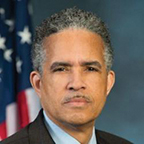
By David J. Byrd
One of the most iconic photographs in recent sports history is one of basketball legend Michael Jordan celebrating his fourth NBA championship by holding up three fingers in celebration with a cigar in his mouth.
Like millions of other Black Americans, Jordan enjoys the occasional simple pleasure of smoking a celebratory cigar – a pleasure that the FDA’s Center for Tobacco Products (CTP) wants to eliminate in the name of “equity” and protecting the Black community.
Along with menthol in cigarettes, the agency plans to “[ban] all flavors in cigars”— a move that it claims “will help save lives, particularly among those disproportionately affected by these deadly products” like the African American community.
Flavored cigars aren’t a cause of carnage in the Black community; they are a cause of celebration and cultural expression.
The Black community has led the premium cigar industry for hundreds of years and continues to do so today.
Many Black entrepreneurs own mom-and-pop cigar shops and run some of the nation’s most popular cigars brands like Emperor’s Cut, AS Reserve, Ancestry Cigars, and Tres Lindas Cubanas (a Black women-owned company).
The exact number of African American-owned cigar shops is unknown. Sean Williams, creator of the popular cigar line El Primer Mundo, told NBC News that his company has “not been able to get great data on specifics of the Black cigar market;” that said, he made it clear that “this number may be substantially larger than anyone knows” and that no one can predict when or if the explosive growth of the African American cigar market will stop.
The CTP’s proposed ban would disproportionately impact these Black-owned businesses and jobs, including Black farmers, exacerbating present-day racial economic disparities while stripping the Black community of an important cultural symbol and tradition. So, it shouldn’t surprise anyone that they are up in arms over CTP’s proposal.
While Black families and business owners feel that the federal government is unfairly attacking their customs and livelihoods, other Black political activists fear that CTP’s crackdown will accentuate the racial disparities currently prevalent in the American criminal justice system.
Rev. Al Sharpton has warned that the rule may create a dangerous illicit market on our streets, among other adverse effects, while the late congressman and beloved civil rights activist Rep. Donald McEachin (D-Va.) said that the rule will “disproportionately impact African Americans and lower-income communities while tobacco products commonly used by predominantly White or more affluent populations [go] unchecked.”
Not only has a federal court already ruled the FDA’s efforts to regulate premium cigars to be “arbitrary and capricious,” but a December report from Congress’ Reagan-Udall Foundation also found “fundamental policy and scientific issues” in CTP’s decision-making that “remain unanswered,” which the Center must address.” Why, then, is CTP continuing onward in its quest to regulate flavored cigars?
It is insulting to the Black community that CTP says it’s doing so in the name of correcting health disparities. Black adults should be trusted to make choices for themselves that align with their preferences. It is not the role of CTP to dictate personal habits and preferences when there is no evidence to support such egregiously heavy-handed interventions.
CTP has promised to take the Reagan-Udall Foundation’s recommendations for corrective operational actions seriously, so hopefully, the agency will soon reverse course on this counterproductive regulatory agenda that’s blind to the Black community’s economic, cultural, and social sensitivities. It’s the only right and just thing to do.
David J. Byrd served as the National Director of the U.S. Department of Commerce, Minority Business Development Agency (MBDA). He previously served as the Deputy Assistant Secretary, Office of Policy Development at the U.S. Department of Housing and Urban Development.


Be the first to comment